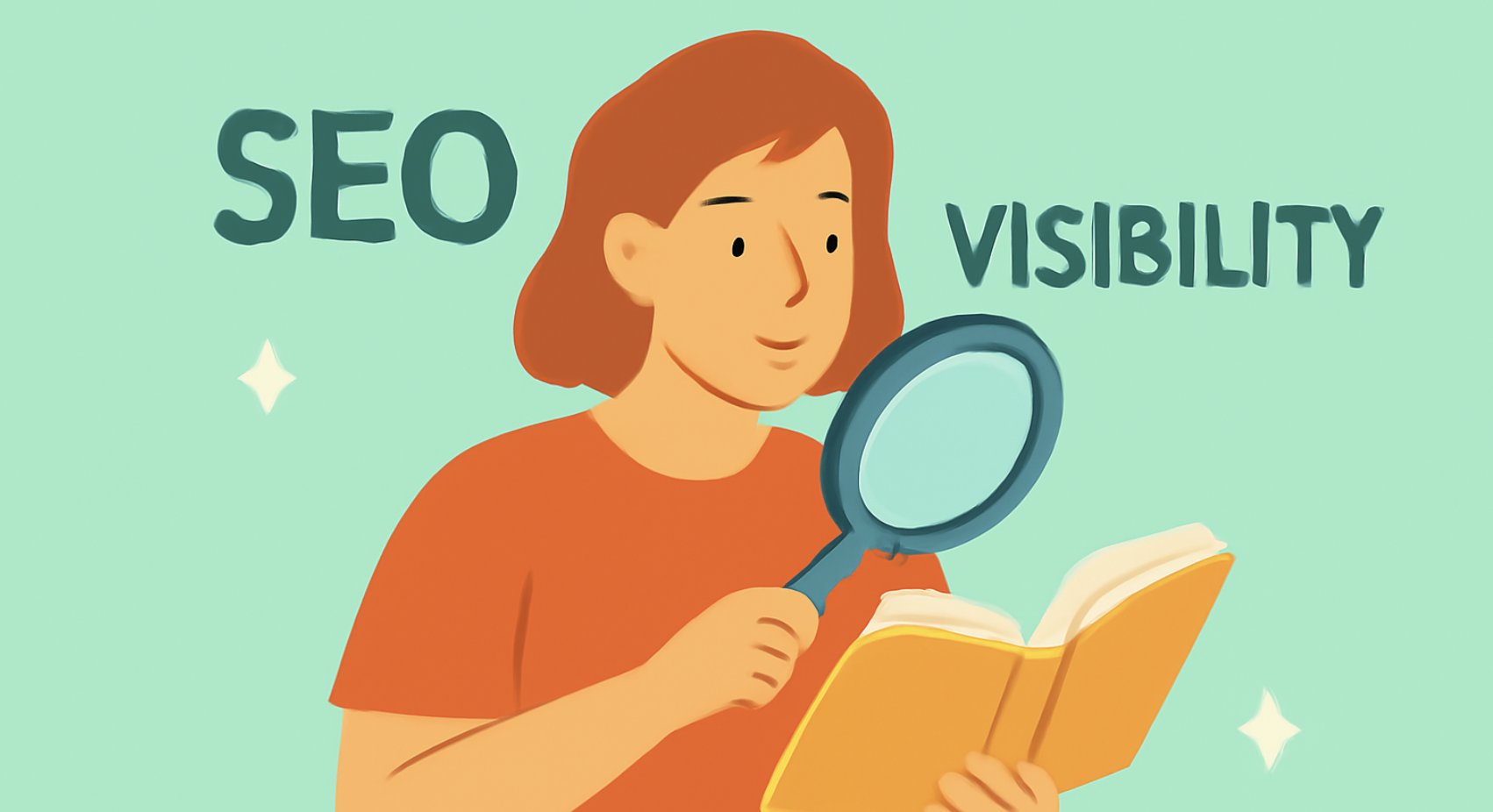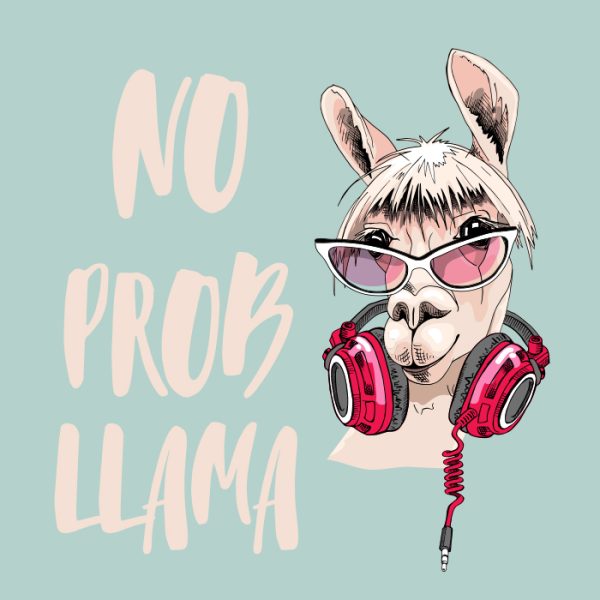The allure of making money from writing books captivates many aspiring authors, promising both creative fulfillment and financial reward. However, the journey to profitable authorship is fraught with challenges, requiring more than just talent and passion. Understanding the two primary pathways—self-publishing and traditional publishing—is crucial for navigating this complex landscape.
Self-publishing offers authors complete control over their work, from writing to distribution, allowing for higher royalty rates and quicker publication. This route, however, demands significant self-marketing efforts and upfront investment in editing and design. Conversely for traditionally published authors, traditional publishing provides access to professional editorial teams, established marketing channels, and a broader distribution network, albeit at the cost of lower royalties and less creative control.
Grasping the entire process from writing to marketing is essential for any author aiming to turn their literary dreams into a profitable reality. This involves not only crafting a compelling manuscript but also understanding the nuances of publishing, marketing and building an author brand, and effectively reaching readers. By exploring these pathways and mastering the associated processes, authors can better position themselves to make more money back from their writing and achieve long-term success in the competitive world of book publishing.
Making Money Writing Books
Writing books can indeed be a profitable venture, but it requires a strategic approach and realistic expectations. The potential profitability varies widely depending on several factors, including the genre, market demand, and marketing strategy.
Your Publishing Journey Awaits – Start NowGenre plays a significant role in an author’s earning potential. Popular genres like romance, thriller, and self-help often have larger and more dedicated readerships than nonfiction, leading to higher sales volumes. Literary fiction, while prestigious, may not sell as many copies as commercial fiction. Nonfiction books on trending topics or with practical advice also tend to do well in the market.
Market demand is another crucial factor. Books that align with current trends or address perennial interests are more likely to attract readers. Understanding the target audience and their preferences can significantly impact sales. Authors who conduct thorough market research and stay attuned to reader interests often find greater success.
Marketing strategy is perhaps the most critical aspect of making money from writing books. Even the best-written book can languish without effective promotion. Authors must invest time and resources into marketing efforts, including building an online presence, leveraging social media, engaging with readers, and utilizing paid advertising. Collaborations with other writers and participating in book events can also boost visibility.
The myth that authors can easily make a fortune from writing is far from reality. Most authors do not become overnight successes. The reality is that building a profitable writing career often requires publishing multiple books, developing a loyal readership, and continuously refining marketing strategies. For many writers, income from book sales is supplemented by other activities such as teaching, consulting, or freelance writing.
Self-Publishing
Self-publishing, the practice of publishing a book independently without the involvement of a traditional publishing house, has seen a significant rise over the past decade. With advancements in digital technology and the proliferation of online platforms, self-publishing has become a viable and attractive option for many authors. This method allows writers to take full control of their publishing journey, from manuscript to market.
Advantages of Self-Publishing:
1. Control: Self-published authors retain complete creative control over their work. They make all the decisions regarding the content, cover design, pricing, and distribution. This autonomy enables authors to maintain their unique voice and vision without external interference.
2. Higher Royalty Rates: One of the most compelling advantages of self-publishing is the potential for higher royalty rates. Traditional publishers typically offer royalties ranging from 10% to 15% of the book’s cover price. In contrast, self-publishing platforms like Amazon Kindle Direct Publishing (KDP) can offer royalties of up to 70%, allowing authors to earn much more money per sale.
3. Faster Publication: The self-publishing process is significantly faster than traditional publishing. Authors who self-publish themselves can bypass the lengthy processes of querying agents and waiting for acceptance from publishing houses. Once a manuscript is ready, it can be published within days, allowing authors to capitalize on current trends or timely topics.
Disadvantages of Self-Publishing:
1. Upfront Costs: Self-publishing requires authors to bear all the initial costs, including editing, cover design, formatting, and marketing. These expenses can add up quickly and pose a financial risk, especially for new authors without a guaranteed return on investment.
2. Need for Self-Marketing: Self-published authors must take on the responsibility of marketing their books. This includes building an online presence, managing social media accounts, engaging with readers, and utilizing paid advertising. Effective marketing is essential to reach potential readers and drive sales, which can be challenging and time-consuming.
Platforms for Self-Publishing:
1. Amazon Kindle Direct Publishing (KDP): KDP is one of the most popular self-publishing platforms, offering a user-friendly interface and access to Amazon’s vast customer base. Authors can publish e-books and print books with KDP, benefiting from the platform’s promotional tools and global reach.
2. Spines: Spines is another emerging self-publishing platform that provides comprehensive services for authors, including editing, design, and marketing support. It offers flexible pricing models and a focus on helping authors maximize their book’s potential.
3. Other Online Marketplaces: In addition to KDP and Spines, there are numerous other online marketplaces for self-publishing, such as Smashwords, Draft2Digital, and Apple Books. These platforms allow authors to distribute their books across multiple retailers, increasing their visibility and sales opportunities.
In conclusion, self-publishing offers a range of benefits, including creative control, higher royalties, and faster publication times. However, it also requires a significant investment of time, effort, and money, particularly in marketing. By leveraging the available platforms and resources, authors can successfully navigate the self-publishing landscape and achieve their publishing goals.
Traditional Publishing
Traditional publishing is the process of having a book published by an established publishing house. This method involves a more structured and formal process compared to self-publishing, typically requiring the author to secure a literary agent who then submits the manuscript to publishers on the author’s behalf. If a publisher accepts the manuscript, they take on the responsibility of editing, designing, marketing, and distributing the book.
Your Publishing Journey Awaits – Start NowAdvantages of Traditional Publishing:
1. Established Distribution Networks: Traditional publishers have extensive distribution networks, ensuring that books are widely available in bookstores, libraries, and online retailers. This broad reach can significantly enhance the book’s visibility and sales potential.
2. Editorial Support: Authors benefit from professional editorial services, including developmental editing, copyediting, and proofreading. This support ensures that the final product is polished and of high quality, which can improve its reception by readers and critics.
3. Marketing Assistance: Traditional publishers have dedicated marketing and publicity teams that work to promote the book. They handle book launches, media outreach, book tours, and other promotional activities, providing authors with valuable exposure and reducing the burden of self-marketing.
Disadvantages of Traditional Publishing:
1. Lower Royalty Rates: Traditional publishers typically offer lower royalty rates compared to self-publishing. Authors usually earn between 10% and 15% of the book’s cover price, as opposed to the higher rates offered by self-publishing platforms. Additionally, advances against royalties, while beneficial upfront, can also impact long-term earnings.
2. Longer Time to Publish: The traditional publishing process is often lengthy, taking anywhere from one to two years from manuscript acceptance to publication. This extended timeline can be frustrating for authors eager to see their work in print and capitalize on timely topics or trends.
3. Less Control: Authors in the traditional publishing process relinquish a significant degree of control over their work. Publishers have the final say on various aspects, including the book’s cover design, title, and marketing strategy. This can be challenging for independent authors, who prefer to maintain creative and business autonomy.
Role of Literary Agents and How to Secure One:
Literary agents play a crucial role in the traditional publishing process. They act as intermediaries between authors and publishers, leveraging their industry knowledge and connections to secure publishing deals. Agents also negotiate contract terms, ensuring authors receive fair advances and royalties.
To secure a literary agent, authors typically need to prepare a query letter, a synopsis of their manuscript, and sample chapters. The query letter should be compelling, highlighting the book’s unique selling points and the author’s credentials. Researching and targeting agents who represent similar genres can improve the chances of finding a good match. Attending writing conferences, workshops, and networking events can also provide opportunities to connect with agents and industry professionals.
In summary, traditional publishing offers significant advantages in terms of distribution, editorial support, and marketing, but it comes with trade-offs like lower royalties, longer timelines, and reduced control. For many authors, securing a literary agent is a crucial step in navigating this path to publication.
Self-Publishing vs. Traditional Publishing
When deciding between self-publishing and traditional publishing, authors must consider key differences and their own goals and resources. Both paths offer distinct advantages and challenges that can significantly impact an author’s career.
Key Differences and Considerations:
1. Control: Self-publishing allows authors to retain full creative control over their work, from content to cover design and pricing. Traditional publishing involves relinquishing some control to the publisher, who will make final decisions on many aspects of the book.
2. Royalties and Earnings: Self-published authors often earn higher royalty rates, typically up to 70% per sale, compared to the 10-15% offered by traditional publishers. However, traditional publishers provide advances, which can offer upfront financial security.
3. Publication Speed: Self-publishing is generally faster, with books going to market within weeks or months. Traditional publishing can take one to two years due to the more rigorous editorial and production processes.
4. Marketing and Distribution: Traditional publishers have established marketing teams and distribution networks, making it easier for books to reach a wide audience. Self-published authors must handle their own marketing, which can be time-consuming and require significant effort and investment.
Criteria to Help Authors Decide:
1. Creative Control: If maintaining creative control is a priority, self-publishing might be the best option.
2. Financial Considerations: Authors who need immediate financial support may prefer traditional publishing for its advances, while those willing to invest upfront may benefit more from the higher royalties of self-publishing.
3. Marketing Capabilities: Authors with strong marketing skills and platforms might thrive in self-publishing, whereas those who prefer professional marketing support may lean towards traditional publishing.
4. Timeline: If speed to market is crucial, self-publishing offers a quicker route. Those who can afford to wait for potentially broader exposure may opt for traditional publishing.
By carefully evaluating these factors, authors can choose the path that best aligns with their personal goals, resources, and aspirations.
Your Publishing Journey Awaits – Start NowWriting Career
Building a sustainable career as an author involves more than writing a single book; it requires a strategic approach, ongoing effort, and a willingness to adapt to the evolving publishing landscape. Here are key elements to consider for developing a lasting and successful writing career.
Writing Multiple Books and Diversifying Income Streams:
A key strategy for a sustainable writing career is to consistently produce new work. Writing multiple books not only builds a backlist that continues to generate income but also helps in establishing and expanding an author’s presence in the market. Additionally, diversifying income streams is crucial. Authors can explore various avenues such as offering writing workshops, providing freelance writing or editing services, speaking engagements, or even venturing into other formats like audiobooks or serialized content.
Developing an Author Brand and Online Platform:
An author’s brand is their unique identity in the literary world, encompassing their writing style, themes, and the way they engage with their audience. Building a strong, recognizable brand helps in attracting and retaining readers. A professional author website is a central component of this brand, serving as a hub for information about the author’s books, blog posts, and upcoming events.
Active engagement on social media platforms like Twitter, Instagram, and Facebook is also important. These platforms allow authors to connect directly with readers, participate in literary discussions, and promote their work. Utilizing email newsletters can keep fans informed about new releases, special promotions, and author news.
By writing multiple books, diversifying income streams, and developing a strong author brand and online platform, authors can create a lasting and successful career.
Author Website and Social Media
In today’s digital age, having an online presence is crucial for authors. An effective online presence helps build an author’s brand, engage with readers, and promote their work. Here’s why it matters and how to do it effectively.
An online presence serves as a central hub for all information related to an author and their works. It enhances visibility, makes it easier for readers to find and purchase books, and provides a platform for direct communication with fans. An author’s website and active social media profiles are essential tools for building a loyal readership and driving book sales.
Tips for Creating an Effective Author Website:
1. Professional Design: The website should be visually appealing, easy to navigate, and reflective of the author’s brand. It’s worth investing in a professional design to create a positive first impression.
2. Essential Pages: Include key sections such as an About page, a bibliography, a blog, and a contact form. The About page should introduce the author and their work, while the bibliography lists all published books with purchase links.
3. Regular Updates: Keep the website updated with new blog posts, book releases, and news. A blog can be a powerful tool for sharing insights, writing tips, and behind-the-scenes content, which can keep readers engaged.
4. Email Newsletter Signup: Encourage visitors to subscribe to an email newsletter. This helps build a mailing list that can be used by the publishing team to notify readers about new releases, special offers, and events.
Leveraging Social Media to Connect with Readers and Promote Books:
1. Choose the Right Platforms: Focus on social media platforms where the target audience is most active. Twitter, Instagram, Facebook, and Goodreads are popular choices for authors.
2. Engage Regularly: Regular interaction with followers is key. Respond to comments, participate in discussions, and share relevant content. Authentic engagement helps build a strong community of readers.
3. Promote Content: Use social media to announce book releases, share blog posts, and highlight positive reviews. Visual content, such as book covers and promotional graphics, can be especially effective.
4. Collaborate with Other Authors: Engaging with fellow authors can expand reach. Cross-promotions, guest posts, and joint events can introduce an author to new audiences.
An effective online presence through a well-designed author website and active social media profiles is vital for modern authors. It helps in building a strong brand, engaging with readers, and promoting books, ultimately contributing to a successful writing career.
The Writing Process
The writing process from idea to manuscript involves several key steps: planning, drafting, and revising.
Planning: This initial stage involves brainstorming ideas, conducting research, and outlining the plot or structure. Detailed planning helps organize thoughts and provides a roadmap for the writing journey.
Drafting: In the drafting phase, writers put their ideas into words, creating the first version of their manuscript. It’s important to write freely and avoid self-editing during this stage to maintain creativity and momentum.
Revising: After completing the first draft, the revision process begins. This involves reviewing and refining the manuscript for clarity, coherence, and consistency. Writers focus on improving the narrative, enhancing character development, and fixing plot holes.
Common Challenges and Solutions:
- Writer’s Block: Overcome by setting a regular writing schedule, taking breaks, and finding inspiration through reading or new experiences.
- Procrastination: Combatted by setting specific, achievable goals and creating a distraction-free writing environment.
- Self-Doubt: Managed by seeking feedback from trusted peers and remembering that revising improves the manuscript.

Publishing With Spines
Spines is a cutting-edge self-publishing platform designed to simplify the publishing process for authors. Here’s a concise guide to publishing with Spines:
1. Manuscript Upload: Begin by uploading your manuscript to the user-friendly dashboard and enter details like title and author name. Secure your work with a copyright protection certificate.
2. Intuitive Cover Design: Use Spines’ AI-powered cover generator to create a captivating cover or upload your own design. AI also helps curate an engaging author bio and blurb.
3. Proofreading: Spines’ AI scans for grammatical errors and offers professional proofreading for a human touch.
4. Formatting: Choose formatting styles and select cover and paper types, ensuring your book looks professional.
5. Audiobook Creation: If included in your plan, Spines’ AI crafts an audiobook in your selected voice, with optional proof hearing.
6. Order Your Copies: Specify the number of copies and place your order. Spines handles production.
7. Global Distribution: Spines ensures your book reaches global audiences via channels like Amazon and Barnes & Noble.
Marketing and Selling Books
Successfully marketing and selling books requires a blend of strategies to reach potential readers. Here are some effective methods:
Paid Advertising: Investing in paid advertising can significantly boost visibility. Platforms like Amazon, Facebook, and Google offer targeted ads that reach specific demographics. By carefully selecting keywords and audience preferences, authors can ensure their book is seen by those most likely to purchase it.
Social Media: Leveraging social media is crucial for modern book marketing. Platforms such as Twitter, Instagram, and Facebook allow authors to engage directly with readers, share updates, and create buzz around their books. Regular posts, interactive content like polls and Q&A sessions, and collaborations with book bloggers and influencers can expand an author’s reach.
Book Descriptions: Crafting a compelling book description is vital. This brief summary should highlight the book’s unique selling points, intrigue potential readers, and include relevant keywords to improve searchability. An engaging and well-written description can significantly increase a book’s appeal and sales.
Importance of Targeting the Right Audience:
Targeting the right audience ensures marketing efforts are efficient and effective. Authors should identify their ideal readers based on genre, interests, and demographics. Understanding this audience allows for tailored marketing messages that resonate more deeply. Tools like reader surveys, social media insights, and market research can help authors define and reach their target audience.
Your Publishing Journey Awaits – Start NowInnovative Ways to Sell More Books:
1. Free Gifts: Offering free gifts with book purchases can incentivize readers. These could include bookmarks, exclusive short stories, or access to special content. Free e-books or sample chapters can also attract new readers.
2. Selling Direct: Authors can sell books directly from their websites. This approach allows them to make money, keep a larger portion of the profits, and build a direct relationship with readers. Bundling books or offering signed copies can make direct sales more appealing.
3. Consulting Services: Nonfiction authors, in particular, can offer consulting services related to their book’s topic. This not only provides an additional revenue stream but also enhances the book’s value and appeal to a larger audience. Hosting workshops, webinars, or one-on-one sessions can attract more readers and boost book sales.
In summary, effective marketing and selling strategies involve a mix of different formats of paid advertising, social media engagement, and compelling book descriptions. Targeting the right audience is crucial, and innovative approaches like offering free gifts, selling directly, and providing consulting services can further enhance book sales and build a loyal readership.
Making Good Money from Writing Books
While making good money from writing books is challenging, some authors have achieved remarkable financial success. For example, J.K. Rowling, author of the Harry Potter series, transformed her story into a global phenomenon, earning her billions. Another notable success is self-published author Amanda Hocking, who initially sold her paranormal romance novels online and later secured lucrative traditional publishing deals.
Continuous learning and adapting to market trends are crucial for achieving financial success in writing. Authors need to stay updated with industry changes, reader preferences, and new marketing strategies. This might involve attending writing workshops, joining author communities, and experimenting with different promotional techniques.
Dedication and perseverance are essential for making serious money from writing. Success often requires writing multiple books, enduring rejections, and constantly honing one’s craft. While the path to financial success in writing is not easy, those who remain committed and adaptable can find substantial rewards.
Conclusion
In this exploration of making money by writing books, we’ve covered key aspects of the publishing journey. From the initial choice between self-publishing and traditional publishing to building a sustainable writing career, effective marketing strategies, and leveraging online platforms, each step is critical for success.
Aspiring authors should take encouragement from the examples of successful authors who have navigated these paths before. Whether choosing the control and higher royalties of self-publishing or the established networks and support of traditional publishing, there are multiple routes to success. Building a strong author brand, engaging with readers, and continuously learning are vital components of a successful writing career.
Writing and publishing books can be immensely rewarding, both creatively and financially. While the journey requires dedication, perseverance, and adaptability, the potential to share your stories with a global audience and make a meaningful impact is worth the effort. For those passionate about writing, pursuing a career in authorship can be a fulfilling and lucrative endeavor.
Your Publishing Journey Awaits – Start Now







